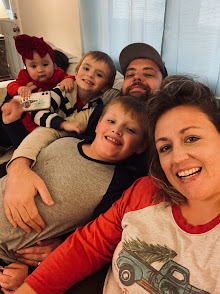Speech Language Pathology and the ASHA Code of Ethics
Speech Language Pathology
and the ASHA Code of Ethics
The American Speech-Language-Hearing Association (ASHA) provides speech language pathologists (SLPs), audiologists, and scientists with a Code of Ethics, reflecting professional values and expectations for science and clinical practice. The first Code of Ethics was formalized in 1952 from the common principles and standards of practice established in 1925. ASHA members providing clinical services must hold the Certificate of Clinical Competence (CCC) and abide by the Code of Ethics. There are four Principles of Ethics that make up the Code of Ethics, which encompass affirmative obligations in all conditions of professional practice. Each Principle of Ethics is followed by Rules of Ethics which are specific statements providing minimal and unacceptable professional conduct in the professional of speech, language, and hearing.
It is very important that all clinicians, educators, mentors, researchers, supervisors, and administrators adhere to the ASHA Code of Ethics in order to maintain certification, uphold professional respect, and provide positive outcomes to those who are served within the scope of practice. If an SLP is judged to be unethical the consequences can be as serious as revocation of ASHA membership and certification for years to life or less serious resulting in private Reprimand. It is also important to abide by the Code of Ethics as it is our duty to provide ethical service delivery to our clients. If a Principle or Rule of Ethics is being violated, there is a client that has not been receiving appropriate evaluation and/or treatment.
Principle of Ethics II:
"Individuals shall honor their responsibility to achieve and maintain the highest level of professional competence and performance."
I believe that the above Principle of Ethics is particularly important in this stage of my journey in becoming an SLP. At this point I feel that I am in the process of achieving the highest level of professional competence and performance to which will allow me to enter my professional career within the parameters of the Code of Ethics. This Principle also mentions that administrative and supervisory roles shall not require or permit staff to provide services or participate in activities that exceed competence, education, training, and expertise, OR compromise staff member's independent and objective professional judgement. This is very important for graduate clinicians and clinicians completing the clinical fellowship program to keep in mind. New or seasoned clinicians should ever be asked to provide service outside of their scope of practice, but new clinicians may be more susceptible to follow directive if not aware of ethical considerations. This proves the importance of ALL clinicians to remain current of the ASHA Code of Ethics when practicing in any environment or stage in the profession.
The above link provides information on the ASHA Code of Ethics process and FAQ. ASHA provides this information through an interview with Katherine F. Meyer the Senior Director or Ethics.
Blogroll
Darla Gardner's blog provides helpful information for speech-language pathologists in various settings.
Rebecca Reinking's blog shares information specific to speech sound disorders (SSD).
The Gift of Gab is a blog by Jessica, where she gives tips, tricks, and strategies to focus on teaching.
B The Impact blog created by Alexandra Barrera to empower disadvantaged youth to achieve goals and success.
The Little Lady Bug Shop blog by Jacqueline Ortiz discusses ways to celebrate culture and diversity in the school setting and why it's important.
Digital SLP, Jessica Cassity, shares her experience as an SLP through the Speech Space podcast. In this post she shares tips and resources for effective collaboration.
Global Teletherapy platform includes a blog with several posts encompassing interprofessional practice (IPP) and collaboration. Howard Goode and Elana Shinkle, MA, CCC-SLP provide an explanation and tips for school-based SLPs for IPP. Click here and here to go directly to these resources.
(no picture of authors on website)The Speech Bubble SLP, Maureen Wilson, is a school-based SLP, sharing her experience in this post with ASHA's Ethics in Confidentiality and how to advocate for an adequate space to deliver students with effective therapy and keep files confidential.
Dr. Mary Huston with blog Speech Adventures, discusses in this post about the Rule of Ethics III and conflict of interest.
The Speech in Motion blog, features five therapists who believe children learn best when they are "supported, safe, and heard." These therapists use Hippotherapy (horse therapy), through the use of equine movement as a therapy tool. In several posts they support the use through ethical consideration.












Comments
Post a Comment